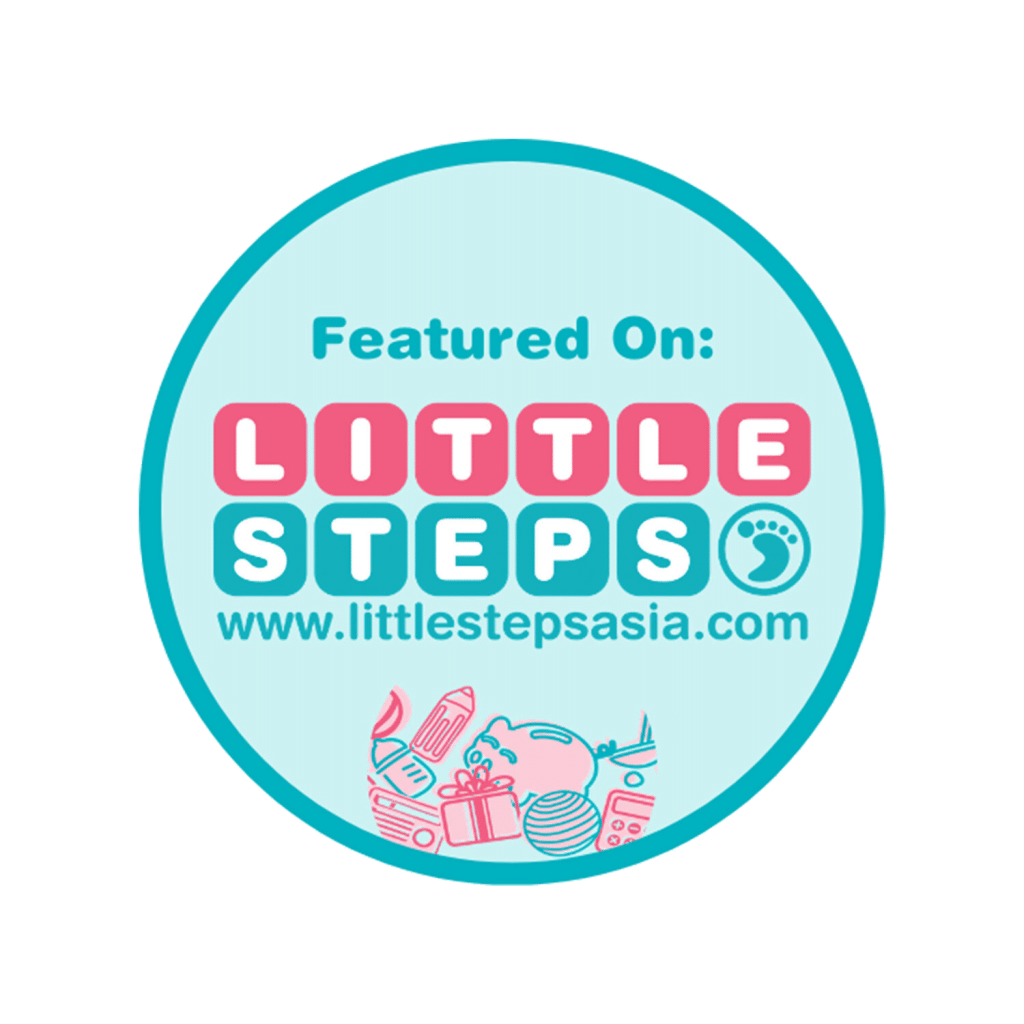Anxiety, a natural response to stress, can feel overwhelming in Singapore’s fast-paced environment, making daily life feel unmanageable. If you find yourself experiencing persistent worry, racing thoughts, or a constant state of unease, please know you are not alone. These feelings are more common than you might think, and do not have to define your life.
Reaching out for professional support is a positive and courageous step. At All in the Family Counselling, we provide a safe, confidential space where you can explore your concerns without judgement. We also believe counselling for anxiety involves a personalised approach that helps you understand your emotional triggers and learn practical, healthy ways to manage your anxiety levels. With commitment and support, you can move beyond these feelings and regain control of your life.

What is Anxiety?
Anxiety is more than just feeling stressed; it’s a state of persistent and excessive worry that can significantly interfere with your daily life. It also involves feelings of apprehension and fear that are often out of proportion to the actual situation.
While fear is an immediate response to a present danger, anxiety is the anticipation of a future threat. This constant state of alert keeps the brain’s natural “fight or flight” response activated.
The Diagnostic and Statistical Manual of Mental Disorders (DSM) also categorises various types of anxiety, acknowledging it as a complex condition that impacts emotional, psychological, and physical well-being. Fortunately, it can be managed with individual counselling for anxiety, which can help you learn coping strategies so you can regain a sense of control over your life.
Healthy vs. Unhealthy Anxiety
Anxiety is a normal human response, serving as a motivator or a warning system. For instance, feeling nervous before a big meeting is a healthy, temporary state. That uneasy feeling before a big exam is another example of healthy anxiety, especially when the worry dies down after the event.
However, anxiety becomes a concern when it is excessive and persistent, lasting for months. Moreover, this can manifest as a constant sense of dread, disproportionate worry, and even panic attacks. Often, this type of unhealthy anxiety prevents individuals from engaging with their work, relationships, and daily activities.
The good news is that these challenges can be addressed. By seeking counselling services in Singapore, you can learn to manage these overwhelming feelings.
Causes of Anxiety
Anxiety doesn’t just “happen” because of external stress or chemical imbalances. It often develops from a person’s belief systems and ways of thinking, shaped by early life experiences and reinforced over time. At its core, anxiety is a protective response, the mind’s way of shielding itself when reality feels too painful or confronting to face directly.
This tension between the conscious and unconscious mind, where a person knows something but does not want to acknowledge it, creates ongoing internal conflict. When emotional development is interrupted in childhood, people may not learn how to process distressing emotions or accept limitations. As adults, these unaddressed feelings often manifest as anxiety, rooted in avoidance, denial, and suppression.
Over time, the inability to face or tolerate life’s realities gives rise to anxiety as a pre-emptive coping mechanism. In this sense, anxiety is less about what’s happening around you and more about how you process and relate to it. Difficulty tolerating uncertainty, saying “no,” or acknowledging emotional pain can all contribute. This inner tension often goes unspoken but reveals itself through persistent worry, restlessness, or unease.
While genetics and neurobiology may influence a person’s sensitivity to emotional stimuli, the root lies in learned patterns of thought and emotional regulation. Early experiences of trauma, isolation, or pressure can condition people to fear vulnerability or uncertainty. For example:
- Childhood trauma can instil beliefs such as “I am not safe” or “I cannot trust others,” leading to hypervigilance and fear.
- Social isolation can reinforce feelings of inadequacy or rejection, shaping a constant expectation of being judged or excluded.
- Negative life events can strengthen beliefs of helplessness or loss of control, intensifying the fear of future uncertainty.
- Societal expectations can create internal pressure to meet impossible standards, resulting in self-criticism and anxiety about failure.
While some may turn to substances, overwork, or distractions to escape these internal conflicts, such habits only provide temporary relief and often deepen anxiety in the long run. Therapy helps individuals recognise how their anxiety has developed from learned ways of thinking, build emotional capacity to face discomfort, and begin facing life’s realities with clarity and self-awareness.
Signs & Symptoms of Anxiety
Anxiety often manifests itself through a range of distinct physical and psychological symptoms, each indicating the presence of this complex mental health challenge. By identifying these unique markers with the help of counselling, individuals can gain a clearer understanding of their experiences and seek appropriate support.
Here are some key signs that could indicate the presence of anxiety:
| Possible Signs of Anxiety | Symptoms |
| Physiological responses | Panic attacks Intense nausea Dry retching Gastrointestinal distress: Irritable bowel syndrome (IBS) Gastric reflux Stomachaches Stomach ulcers Dizziness Feelings of losing control Fears of fainting Disrupted sleeping patterns Night sweats Sweaty palms Trembling hands Body shakesTingling sensations in various parts of the body |
| Impaired concentration and mental paralysis | Difficulty in focusing Mental numbness Moments of feeling mentally paralysed Feelings of helplessness and hopelessness |
| Specific phobias (such as crowded places, public presentations, or germs) | An intense feeling of fear when confronted with their phobia. |
| Fear of judgment | Constantly worrying about what others think A persistent fear of being judged negatively |
| Heightened irritability | Difficulty in managing emotional responses Excessive frustration or anger Restlessness |
| Overwhelming emotions | Breaking down in tears without a clear trigger Incessant worrying about various aspects of their lives: Work-related performance Academic responsibilities Personal relationships Financial stability Overall well-being |
| Avoidance behaviours | Steering clear of situations, environments, or activities that evoke intense feelings of anxiety, such as avoiding social interactions or shying away from crowded places. |

Different Types of Anxiety Disorders
Anxiety disorders encompass a range of distinct conditions, each characterised by its unique set of symptoms, triggers, and effects on daily life. Understanding these different types of anxiety disorders is crucial for individuals seeking insight into their own experiences and the experiences of loved ones with this condition. Therefore, going for counselling for anxiety may be incredibly helpful, offering tailored strategies and support to manage these disorders.
Here are the various forms of anxiety disorders and their symptoms:
Panic Disorder
This anxiety disorder manifests as recurrent panic attacks that occur unexpectedly.
The intense fear and worry about having a panic attack may then lead to significant changes in behaviour and disruptions in one’s daily life.
Example:
Someone experiencing a sudden, overwhelming sense of dread and physical symptoms of a heart attack while in a crowded shopping mall, even when there is no actual danger.
Symptoms:
- Sweating
- Chest pains
- An elevated heart rate
- Sensations resembling a heart attack or choking
Social Anxiety Disorder (Social Phobia)
This disorder involves an intense and persistent fear of social situations. Individuals with social anxiety are often concerned about being judged or scrutinised by others, leading to significant distress and avoidance of social events.
Example:
Avoiding public speaking or large gatherings.
Symptoms:
- Feeling self-conscious in social settings
- Excessive fear of embarrassment
- Avoiding eye contact
- Nausea or trembling when in social situations
Specific Phobias
Specific phobias involve an intense fear of a particular object or situation, like heights or seeing blood or snakes. Encountering these objects or situations can often trigger a fear response akin to the symptoms of a panic attack.
Example:
Someone who trembles excessively when they’re about to ride a plane.
Symptoms:
- Freezing up
- Trembling
- An increased heart rate
Generalised Anxiety Disorder (GAD)
GAD is characterised by excessive and persistent worries about several everyday matters, lasting for months. Therefore, making decisions and committing to choices may be particularly challenging for individuals with GAD.
Example:
Excessive worry about one’s health, money, or work.
Symptoms:
- Fatigue
- Irritability
- Muscle tenseness
- Disruptions in sleep patterns
Post-Traumatic Stress Disorder (PTSD)
Individuals who have experienced extreme traumatic events such as abuse or natural disasters may develop PTSD.
Example:
Re-experiencing a traumatic event through flashbacks.
Symptoms:
- Excessive vigilance
- Flashbacks of the traumatic event
- Perceiving threats in everyday situations
- Outbursts of anger
- Sleep disturbances
Obsessive-Compulsive Disorder (OCD)
OCD involves a pattern of unwanted thoughts and fears (obsessions) that lead to repetitive behaviours (compulsions). The individual feels driven to perform these compulsive rituals in an attempt to reduce their anxiety. These behaviours can consume a significant amount of time and interfere with daily functioning.
Example:
Intrusive thoughts about germs leading to excessive handwashing.
Symptoms:
- Unwanted thoughts or urges
- Repetitive behaviours
- Need for orderliness
Fear of contamination
It’s important to note that these descriptions provide a basic overview of each anxiety disorder. Symptoms and experiences can vary widely among individuals, and professional evaluation and counselling are essential for proper identification and tailored therapy plans.
Counselling for Anxiety
When anxiety feels overwhelming, various therapeutic approaches can provide a path forward. With anxiety counselling, you can understand the root of your distress, equipping you with the skills and strategies needed to manage your emotions and reactions.
Often, a significant part of learning to live with anxiety is learning to acclimate to discomfort, adjust expectations, and understand what your mind and body are reacting to. Therapy doesn’t promise quick relief, but it offers perspective: settling isn’t about giving up, but more about choosing understanding over avoidance.
Cognitive-Behavioural Therapy (CBT)
CBT is a structured and highly effective form of talking therapy that focuses on the interconnectedness of your thoughts, feelings, and behaviours. It can help you identify and challenge unhelpful thought patterns that contribute to anxiety, such as overthinking or catastrophising. Through practical exercises, you can learn to reframe negative beliefs and develop healthier ways of responding to stressful situations. The goal of this process is to provide you with the tools to manage your anxiety long after your sessions have concluded.
Exposure Therapy
Exposure therapy is a targeted approach for managing anxiety related to specific fears or phobias. This therapy works by gradually and safely exposing you to the situations or objects that trigger your fear. Under the guidance of an accredited psychotherapist, you’ll learn to confront your anxieties in a controlled environment. The goal is to desensitise your fear response, reduce your avoidance behaviours and to build confidence over time.
How Counselling for Anxiety Can Help
Counselling for anxiety can provide a structured and supportive path to managing overwhelming feelings and fostering your overall wellbeing. By engaging in professional guidance, you can develop a range of skills and insights that lead to lasting, positive change.
- Emotional Regulation: Counselling can help you learn to identify, understand, and manage your emotions more effectively, so you can respond to challenges rather than feeling controlled by them.
- Coping Strategies: You will gain practical, healthy tools to navigate stressful situations and react to anxiety triggers in a constructive way.
- Reduced Physical Symptoms of Anxiety: By addressing the underlying psychological factors, counselling can help lessen the physical manifestations of anxiety, such as a racing heart, muscle tension, or fatigue.
- Stronger Relationships and Work Performance: As you gain better control over your emotions and reactions, your interactions with others at work and in your personal life can become more positive and fulfilling.
- Self-confidence and Resilience: Through talking therapy sessions, you can challenge self-limiting beliefs and develop the inner strength needed to face life’s challenges with greater confidence.
- Long-term Mental Well-Being Support: The skills learned in counselling provide a foundation for long-term mental health, empowering you to maintain your progress independently.
Fees for Anxiety Counselling in Singapore
All in the Family Counselling’s fee structure is clear and transparent, ensuring you have all the details you need to make an informed decision about your mental wellbeing.
| Services | Duration (12PM to 3AM Daily) | Price |
| Online and In-Person Counselling | 50 minutes | S$250 |
| 80 minutes | S$375 | |
| 100 minutes | S$500 | |
| Outside Office Hours | 50 minutes | S$450 |
| Phone Consultations (beyond 15 minutes) | 15 minutes | S$90 |
Please visit our Fees page for a full breakdown of our rates and packages for addressing anxiety.
Our Anxiety Therapist

Tammy Fontana
M.S., NCC, CTRT, USA Sex Therapist, Hypnotherapist
Tammy Fontana, M.S., NCC, CTRT, provides a comprehensive approach to addressing anxiety, leveraging her experience in the field. With an M.S. in Mental Health Counselling and certifications from the US National Counsellor Exam (NCE), her practice is built on a foundation of rigorous clinical training. She has completed a 3000-hour clinical practicum and internship, gaining experience in managing anxiety and its related challenges.
As a therapist, her approach to anxiety is grounded in evidence-based methods, including techniques such as cognitive-behavioural therapy (CBT) and exposure therapy. She works to help individuals understand their triggers, manage difficult emotions, and develop practical skills to navigate daily life with confidence. Her focus is on guiding clients on their path toward emotional well-being.





FAQs About Anxiety Counselling
1. What does overwhelming levels of anxiety look like in daily life?
Overwhelming anxiety can significantly impact your daily routine, and it can manifest as constant irritability, difficulty concentrating on tasks, persistent muscle tension, or avoidance of social situations. Without counselling, these issues may make it hard to perform at work, maintain relationships, or even engage in simple activities.
2. When should I seek professional help for anxiety in Singapore?
You should consider seeking anxiety counselling if you experience persistent worry, fear, or overwhelming anxiety that interferes with your daily life. If you find it challenging to manage symptoms on your own, or if anxiety disrupts your relationships and functioning, professional counselling can provide guidance and strategies to cope with your situation.
3. What is the fastest method for addressing anxiety?
There is no single fastest method for addressing anxiety, as the approach is highly individual. While some people may experience some improvement after a few counselling sessions, lasting change requires consistency. Progress depends on your commitment to the process and applying the skills learned in therapy to your daily life.
4. How do I know if I need counselling help for anxiety or if it is stress that I can get through on my own?
While some stress can be managed on your own, it may be time to seek counselling if it is affecting your daily functioning, such as your sleep, work performance, or relationships. If you are experiencing symptoms of anxiety like constant worry, panic attacks, or thoughts of self-harm, it is essential to seek professional help.
5. How many sessions do I need?
The number of counselling sessions needed for managing anxiety varies based on individual circumstances. Some individuals see positive changes after a few sessions, while others may benefit from more extended support. Experienced therapists will collaborate with you to determine a suitable plan tailored to your needs, ensuring progress throughout your journey towards well-being.
6. Do medications have to be taken together with counselling and psychotherapy to improve my anxiety?
Medications are not always necessary to address anxiety. Whether a combined approach is suitable for you depends on your specific situation. Research also shows that counselling alone can produce positive outcomes. However, the decision to use medication is a personal one that should be made in consultation with a qualified professional.
Get in Touch with a Therapist for Anxiety Near You
Reach out to us to schedule your in-person or online counselling. Together, we’ll address your anxiety, helping you learn coping strategies.
- Address: 60 Paya Lebar Road, #11-06 Paya Lebar Square Singapore 409051
- Telephone: +65 9030 7239
- Email: tammy@allinthefamilycounselling.com



